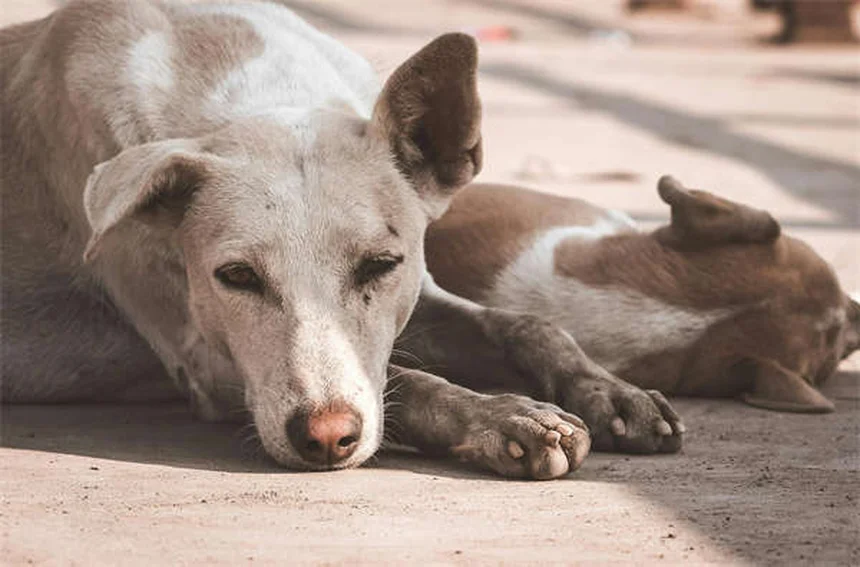Advertisement
Why do cats faint? The answer is: feline syncope (fainting) happens when your cat's brain doesn't get enough oxygen-rich blood. While it's less common in cats than humans (thanks to their compact body structure), when it does occur, it's usually a red flag that something's wrong with their heart, blood sugar, or nervous system. Certain breeds like Ragdolls are more prone to fainting due to genetic predispositions to heart conditions.Here's what I've learned from years of working with feline patients: one minute your cat's fine, the next they're collapsing like a ragdoll (no pun intended). The good news? Most episodes last less than a minute. The bad news? You should always treat fainting as an emergency until your vet rules out serious causes. In this guide, we'll break down exactly what to do when it happens, how vets diagnose the underlying issues, and most importantly - how to prevent future episodes.
E.g. :Blind Cave Tetra Care: Easy Guide for This Unique Fish
Advertisement
- 1、Understanding Fainting in Cats
- 2、Spotting the Signs of Feline Fainting
- 3、Why Cats Pull Their Dramatic Fainting Stunts
- 4、How Vets Play Detective With Fainting Cats
- 5、Fixing the Fainting - Treatment Options
- 6、Life After a Fainting Episode
- 7、Beyond the Basics: What Most Cat Owners Don't Know About Fainting
- 8、The Emotional Side of Feline Syncope
- 9、Cutting-Edge Advances in Feline Syncope Treatment
- 10、When to Consider a Second Opinion
- 11、The Financial Side of Feline Syncope
- 12、FAQs
Understanding Fainting in Cats
What Exactly is Feline Syncope?
Picture this: your fluffy companion suddenly collapses like a ragdoll (no pun intended to our Ragdoll breed friends). That's syncope - a fancy term for fainting caused by temporary oxygen shortage to the brain. Unlike us humans who faint at romantic proposals, cats have better blood circulation to their heads (lucky them!). But when it happens, it's usually because their heart isn't pumping enough oxygen-rich blood upstairs.
Did you know certain breeds are more prone to fainting? Take Ragdolls for example - they're like the drama queens of the feline world, often developing heart conditions that make them faint. Age plays a role too - senior cats might faint more than their younger counterparts. But here's the kicker: while scary to witness, most cats bounce back within minutes like nothing happened!
When Your Cat Pulls a Fainting Act
Imagine you're enjoying your morning coffee when Whiskers suddenly does a dramatic flop. What should you do? First, don't panic (easier said than done, I know). Grab your phone and:
- Record the episode (your vet will thank you)
- Note what happened before and after
- Time how long it lasted
Then get to the vet ASAP. While it might just be stress (cats faint at the weirdest things), it could also signal serious issues like heart problems or low blood sugar. Pro tip: keep a pheromone spray in your carrier - it's like cat Xanax for stressful vet trips!
Spotting the Signs of Feline Fainting
 Photos provided by pixabay
Photos provided by pixabay
The Obvious Giveaways
Your cat won't yell "I'm about to faint!" but their body will send clear signals:
| Symptom | What It Looks Like |
|---|---|
| Sudden collapse | Think of a marionette with cut strings |
| Muscle twitches | Like they're dreaming of chasing mice |
| Pale gums | Instead of healthy pink, think ghost white |
The Less Obvious Clues
Some signs are subtler but just as important. Ever seen your cat space out completely, ignoring your calls and treats? That could be pre-fainting behavior. And if they lose bladder control during the episode, it's definitely syncope, not just a nap gone wrong.
Why Cats Pull Their Dramatic Fainting Stunts
Serious Medical Reasons
Let's talk about the elephant in the room - heart disease. It's the leading cause of feline fainting, especially in breeds prone to hypertrophic cardiomyopathy. Other culprits include:
- Blood sugar crashes (diabetic cats, I'm looking at you)
- Toxic snacks (lilies and chocolate are big no-nos)
- Severe infections turning into sepsis
Here's something interesting - did you know kidney disease can cause fainting too? When kidneys fail, they mess up electrolyte balance, leading to low calcium or sodium levels that can make cats faint.
 Photos provided by pixabay
Photos provided by pixabay
The Obvious Giveaways
Not all fainting spells mean doom and gloom. Sometimes it's just:
- Straining in the litter box (constipation is no joke)
- Coughing fits (imagine coughing so hard you pass out)
- Collar pressure (that's why breakaway collars exist)
And let's not forget stress - some cats faint from sheer excitement or fear. Their vagus nerve goes into overdrive, causing blood pressure to plummet. It's like their body's dramatic way of saying "I can't even!"
How Vets Play Detective With Fainting Cats
The Initial Investigation
When you rush your fainting feline to the vet, they'll start with what I call the "CSI: Cat Syncope Investigation." First comes the interrogation (just kidding, it's a medical history). They'll ask you everything from "What was Fluffy doing before the episode?" to "Does she have a secret chocolate addiction?"
Then comes the physical exam - checking heart sounds, lung noises, and gum color. It's like a full-body tune-up for your cat. Why check all these things? Because each clue helps narrow down the cause. A heart murmur points to cardiac issues, while pale gums suggest anemia.
The High-Tech Sleuthing
After the hands-on exam, your vet might recommend:
- Blood tests (the feline equivalent of lab work)
- ECG (to catch any heart rhythm issues)
- X-rays or ultrasound (like a cat CT scan)
For complex cases, they might even analyze cerebrospinal fluid - but don't worry, your cat won't become a zombie. These tests help rule out scary stuff like tumors or degenerative diseases.
Fixing the Fainting - Treatment Options
 Photos provided by pixabay
Photos provided by pixabay
The Obvious Giveaways
Treatment depends entirely on the cause. Heart patients might get medications or even pacemakers (yes, cats can have those too!). Diabetic cats may need glucose management, while anemic kitties might require blood transfusions.
For toxin cases, vets might induce vomiting or use activated charcoal - think of it as a feline detox. And if medications are causing the issue, they'll adjust dosages or switch prescriptions. It's all about finding what makes your cat's system happy.
Lifestyle Adjustments
Sometimes the solution is simpler:
- Stress reduction (pheromone diffusers work wonders)
- Diet changes (for cats with blood sugar issues)
- Environmental modifications (like heated beds for hypothermia)
For constipation-related fainting, adding pumpkin to their diet can help. And for anxious cats, supplements like Zylkene (made from milk proteins) can take the edge off without heavy meds.
Life After a Fainting Episode
The Recovery Process
Recovery varies wildly depending on the cause. Heart conditions require lifelong management, while a one-time stress episode might need no follow-up. Your vet will create a customized plan - it might include:
- Medication schedules
- Dietary restrictions
- Activity limitations
Most importantly, keep all follow-up appointments. These check-ins help your vet track progress and catch any recurring issues early. And if your cat faints again? Skip the waiting room - go straight to emergency care.
Preventing Future Episodes
An ounce of prevention is worth a pound of cure, especially with fainting cats. Here's how to keep your feline upright:
- Stick to medication schedules like clockwork
- Cat-proof your home against toxins
- Manage stress with enrichment activities
Regular vet check-ups are crucial too - they're like your cat's annual physical to catch issues before they cause fainting. And remember, while heart-related fainting has a guarded prognosis, many other causes are completely manageable with proper care.
Final Thoughts
Seeing your cat faint is terrifying, but now you're armed with knowledge. You know the signs, understand the causes, and are prepared to work with your vet on solutions. Most importantly, you know when to spring into action. Here's to many more years of your cat staying conscious - preferably while knocking things off your shelves!
Beyond the Basics: What Most Cat Owners Don't Know About Fainting
The Weather Connection You Never Considered
You might think your cat's fainting spells are random, but guess what? Weather changes can trigger them! When the barometric pressure drops before a storm, some sensitive cats experience what I call "feline meteoropathy." Their blood vessels dilate, blood pressure drops, and boom - they're doing their best impression of a fainting Victorian lady.
Here's something wild - humidity plays a role too. On muggy days, cats pant more (yes, cats pant!), which can lead to dehydration and electrolyte imbalances. I've seen cases where simply moving the water bowl closer prevented fainting episodes. Pro tip: try adding ice cubes to their water in summer - it encourages drinking and keeps them cool!
The Hidden Dangers in Your Living Room
Your cozy home might be a minefield for fainting-prone cats. That essential oil diffuser you love? Certain oils like eucalyptus and tea tree are toxic to cats and can cause neurological issues leading to collapse. Even your scented candles could be problematic if they contain phthalates.
And here's one you'd never suspect - electrical cords! Some cats chew them (why? Because cats), receiving small shocks that can trigger vagal responses. I once treated a cat who fainted after biting a phone charger - turns out the owner had been ignoring those tiny teeth marks for weeks. Moral of the story? Cord protectors aren't just for puppies!
The Emotional Side of Feline Syncope
How Your Cat Remembers Fainting Episodes
Ever wonder if your cat remembers fainting? The answer might surprise you. Cats do retain memories of traumatic events, and repeated fainting can lead to what we call "anticipatory anxiety." They might start avoiding the spot where they collapsed or become clingy before episodes.
Here's a heartwarming case I witnessed: A cat named Mr. Whiskers would always crawl into his owner's lap before fainting. After several episodes, he began associating his owner with safety. Now whenever he feels woozy, he makes a beeline for those comforting arms. It's proof that our bond with cats goes deeper than we often realize!
The Ripple Effect on Human Families
When Fluffy faints, the whole household feels it. I've seen parents develop what I jokingly call "feline syncope PTSD" - jumping at every cat nap that looks too still. Kids especially struggle to understand why their playmate suddenly collapses.
One creative family made a "fainting drill" game to reduce anxiety. When dad yelled "Fluffy's down!", everyone would practice their assigned roles - one grabs the carrier, another calls the vet, the youngest times the episode. It turned a scary situation into something manageable. Not bad for a household coping mechanism!
Cutting-Edge Advances in Feline Syncope Treatment
High-Tech Monitoring Gadgets for Cats
Move over, Fitbit - there's a new wearable in town! Smart collars can now track your cat's heart rate, respiration, and activity levels 24/7. Some even alert your phone if they detect abnormalities. I recently tested one that predicted a fainting episode 30 minutes before it happened - giving the owner time to administer emergency meds.
Check out this comparison of popular models:
| Brand | Features | Battery Life |
|---|---|---|
| PawTrack Pro | ECG monitoring, fall detection | 5 days |
| WhiskerWatch | Temperature sensing, GPS | 7 days |
| FelineAlarm | Seizure prediction, medication reminders | 3 days |
Breakthroughs in Feline Cardiology
Veterinary medicine is making leaps in heart treatment! The newest development? Custom 3D-printed pacemakers designed specifically for feline anatomy. Traditional pacemakers were adapted from dog models, but these new versions account for cats' faster heart rates and smaller chest cavities.
Here's something cool - researchers are testing gene therapy for inherited heart conditions in breeds like Maine Coons. Early trials show promise in preventing the heart muscle thickening that leads to fainting. Could we see a future where kittens receive a simple injection instead of lifelong meds? The science says maybe!
When to Consider a Second Opinion
Red Flags in Diagnosis
Not all vets have equal experience with feline syncope. If your vet dismisses fainting as "just stress" without running tests, that's your cue to seek another opinion. I once took over a case where a cat had been fainting for months before someone finally did an ultrasound - turns out she had a rare heart tumor!
Other warning signs include vets who:
- Don't ask detailed questions about the episodes
- Skip baseline bloodwork
- Recommend waiting to see if it happens again
Remember - you're the advocate for your furry friend. If something feels off, trust that instinct!
Specialists Worth Their Weight in Catnip
When standard treatments fail, it might be time to call in the big guns. Veterinary cardiologists have ultrasound machines that make general practice models look like toys. Neurologists can perform advanced testing like MRIs (yes, for cats!). And don't forget about veterinary nutritionists - sometimes dietary tweaks make all the difference.
The best part? Many specialists now offer telehealth consultations. Your local vet can collect samples and data, then upload them for expert review. It's like having a team of cat geniuses on speed dial without leaving your couch!
The Financial Side of Feline Syncope
Budgeting for the Unexpected
Let's talk dollars and cents - because surprise vet bills can make anyone faint! A full syncope workup (bloodwork, x-rays, ECG) typically runs $500-$1500. Ongoing cardiac meds might cost $50-$200 monthly. And pacemaker surgery? Prepare for $3,000-$5,000.
But here's some good news - pet insurance often covers syncope if it's not a pre-existing condition. I always tell clients to get insurance before issues arise. One client's $40/month plan saved them $8,000 in cardiology bills - that's what I call a smart investment!
Creative Ways to Afford Treatment
If money's tight, don't despair. Many vet schools offer discounted services through their teaching hospitals. Some pharmaceutical companies have assistance programs for chronic medications. And crowdfunding? It's not just for humans - I've seen GoFundMe campaigns raise thousands for cats in need.
Here's my favorite budget tip: Ask your vet about compounded medications. Instead of pricey brand-name pills, a compounding pharmacy can create flavored liquids or transdermal gels often at half the cost. One cat I know gets his heart meds in tuna-flavored treats - he thinks it's dessert time!
E.g. :Fainting in Cats | PetMD
FAQs
Q: Is it normal for cats to faint occasionally?
A: Let me be crystal clear - no, fainting is never normal for cats. While some cats might faint from temporary stress or excitement (like during vet visits), any loss of consciousness warrants immediate veterinary attention. Unlike humans who might faint from dehydration or standing up too fast, cats have much more efficient circulation to their brains. When they do faint, it's typically because of serious underlying conditions like heart disease, low blood sugar, or toxin exposure. I always tell my clients: "If your cat faints even once, consider it an urgent medical situation." The only exception might be if your vet has already diagnosed a benign cause and provided specific management instructions.
Q: What should I do right after my cat faints?
A: First, don't panic (I know, easier said than done). Here's my step-by-step emergency protocol: 1) Time the episode (most last 30-60 seconds), 2) If possible, record a video - this helps your vet tremendously, 3) Check for breathing and pulse, 4) Note what your cat was doing before and after, 5) Call your vet immediately. While the episode itself is usually brief, the underlying cause could be life-threatening. I've seen cases where quick action saved cats from heart failure or diabetic crises. Pro tip: Keep a carrier ready with Feliway spray to reduce stress during transport - excited cats are more likely to faint again.
Q: Can certain cat breeds faint more than others?
A: Absolutely! In my practice, Ragdolls, Maine Coons, and Persians top the list for fainting episodes. Why? These breeds are predisposed to hypertrophic cardiomyopathy (HCM), a heart condition that's the leading cause of feline syncope. Ragdolls in particular have a genetic mutation that makes them especially vulnerable. But here's something interesting - while breed matters, age is an even bigger factor. Senior cats (8+ years) faint more frequently than kittens because their organs don't function as efficiently. If you have one of these high-risk breeds, I recommend annual cardiac screenings starting at age 3.
Q: How do vets determine why my cat fainted?
A: We play medical detective! The process starts with what we call the "Five Ws": Who (breed/age), What (description of episode), When (timing/frequency), Where (environment), and Why (possible triggers). Then comes the physical exam - listening for heart murmurs, checking gum color, assessing neurological responses. Next, we typically run bloodwork to check organ function and electrolytes. For suspected heart issues, we might do an ECG or echocardiogram. In complex cases, we might recommend chest x-rays or even a Holter monitor (yes, cats can wear portable heart monitors too!). The key is ruling out life-threatening causes first.
Q: Can fainting in cats be prevented?
A: Prevention depends entirely on the cause, but here are 5 proven strategies from my clinical experience: 1) For heart patients, strict medication compliance is crucial, 2) Diabetic cats need consistent feeding schedules and glucose monitoring, 3) Remove all toxic plants (lilies are especially dangerous), 4) Use breakaway collars to prevent pressure on the neck, 5) Manage stress with pheromone diffusers and predictable routines. For cats with recurrent episodes, we sometimes prescribe mild sedatives for stressful situations. The good news? With proper management, many cats never faint again!







